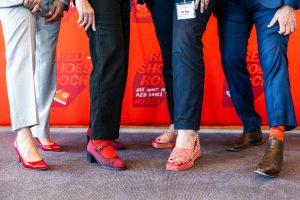Victorian high school principals receive less support and clear guidance about recommended alcohol policies, and are therefore more likely to serve booze at their school functions than those in New South Wales.
New research, funded by the Foundation for Alcohol Research and Education (FARE), provides valuable insights into the practices and policies on adult alcohol use at high school events through a cross-sectional survey of principals.
While education departments provide a recommendation for their jurisdiction, much of the responsibility for determining whether or not to serve liquor at a school event sits with the principals and school councils.
The study found that New South Wales public school principals were more likely to be aware of the education department policy, and to have implemented an alcohol policy at their own school than their Victorian counterparts.
Of concern, only half the Victorian principals surveyed believed they had enough information to make informed decisions about the consumption of alcohol at school events, in contrast to the 81 per cent of New South Wales principals who were confident with their level of knowledge.
Lead researcher Dr Bernadette Ward, of Monash University, says education departments have an important role in setting appropriate guidelines and in supporting principals to make informed decisions about their alcohol policies – both of which could be done far better.
“The existing Australian state and territory policies are conflicting. In Victoria there are different guidelines for functions held on and off school premises and alcohol can be permitted at times with school council approval; while the New South Wales policy is much clearer and doesn’t allow alcohol to be brought or consumed on the school premises by any employees, students or visitors.”
“Irrespective of the location, school staff have a duty of care to ensure that students are safe. And that includes ensuring that adults are not role modelling risky drinking behaviours like those being reported at some school events,” says Dr Ward.
The research found that alcohol had been consumed in the presence of underage students at a total of 100 events across 86 high schools in these states during 2014 – including Year 10 and 12 graduations, valedictory dinners, debutante balls, fetes, and even a Year 7/8 camp.
Alcohol was reported at functions held by 57 per cent of Victoria’s public secondary schools, compared to just 15 per cent of those in New South Wales.
Alcohol was sold to adults at 85 per cent, freely given at nine per cent and available as ‘bring your own’ (BYO) at six per cent of these events.
Of the high schools which had an alcohol policy in place, 64 per cent of those in Victoria chose to ban liquor from all school functions compared to 96 per cent who were dry in New South Wales.
Victorian principals were also less likely than their New South Wales counterparts to support a state-wide education department policy excluding alcohol from school functions (54 per cent and 92 per cent respectively).
FARE Chief Executive Michael Thorn says that Australian governments and education departments should take action to change the culture of drinking among parents and educators, and remove the inappropriate and unnecessary associations between alcohol and schools.
“Alcohol is a harmful product, associated with a range of short and long term harms. Research shows that the behaviours modeled by parents and carers are a key influence, with children and adolescents who are introduced to alcohol at a younger age more likely to start drinking earlier and at riskier levels than their peers,” says Mr Thorn.
“We need clear and consistent policies governing the use of alcohol at school events where young people under the legal drinking age are present. It is both unfair and reckless that the burden of these decisions is being placed with school principals who aren’t receiving enough support and information about alcohol and its associated harms,” Mr Thorn said.






